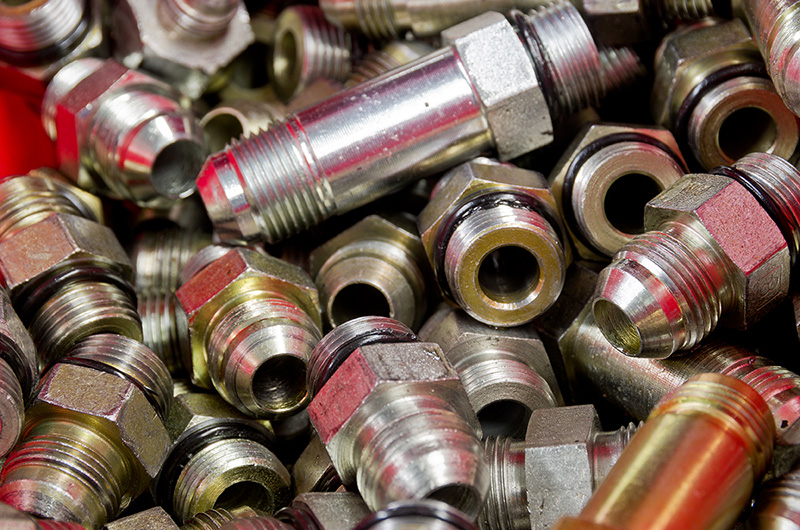
When selecting O-Rings for specific applications, being aware of industry standards and certifications is crucial to ensure optimal performance, safety, and reliability. Here are some important industry standards and certifications to consider:
-
AS568 Standard: The AS568 standard, established by the Society of Automotive Engineers (SAE), defines the dimensions and tolerances of O-Rings. It categorizes O-Rings based on their cross-sectional diameter and inner diameter, making it easier to choose the right size for your application.
-
ISO 3601 Standard: The International Organization for Standardization (ISO) has its own standard for O-Rings, known as ISO 3601. This standard defines O-Ring sizes, tolerances, and materials, providing a global reference for O-Ring specifications.
-
FDA Approval: If your application involves contact with food, beverages, pharmaceuticals, or medical devices, ensure that the O-Ring material is approved by the U.S. Food and Drug Administration (FDA) or equivalent regulatory bodies in your region. Materials like FDA-approved silicone are commonly used in such applications.
-
NSF Certification: The National Sanitation Foundation (NSF) provides certification for materials that are safe for use in drinking water and food-related applications. NSF-certified O-Rings are suitable for industries where water quality and safety are paramount.
-
ASTM D2000 Standard: This standard, published by the American Society for Testing and Materials (ASTM), provides guidance on the classification of rubber products, including O-Rings, based on their type, class, and grade. It helps ensure consistency and quality in rubber materials.
-
UL Recognition: Underwriters Laboratories (UL) offers recognition for O-Ring materials that meet specific safety and performance criteria. UL-recognized O-Rings are commonly used in electronics and electrical applications.
-
AMS Specifications: The Aerospace Material Specifications (AMS) are industry standards specifically for materials used in aerospace applications. If your O-Rings will be used in aerospace or aviation contexts, look for materials that meet AMS specifications.
-
Mil-Spec Standards: In military and defense applications, O-Rings that meet military specifications (Mil-Spec) are often required. These standards ensure that the O-Rings can withstand the rigors of military environments.
-
Chemical Compatibility: Depending on the chemicals and fluids your O-Rings will come into contact with, ensure they are compatible with those substances. Certain industries, such as chemical processing and oil and gas, have specific material requirements to resist chemical degradation.
-
Temperature and Pressure Ratings: Consider the temperature and pressure conditions of your application. Different O-Ring materials are designed to perform within specific temperature and pressure ranges. Make sure the chosen O-Ring can handle the intended conditions.
-
Quality Management Systems: Manufacturers that adhere to quality management systems such as ISO 9001 or IATF 16949 demonstrate a commitment to producing consistent, high-quality products. Choosing O-Rings from such manufacturers can enhance reliability.
Need help selecting the right O-Ring?
Our experts have crafted several helpful resources to explore:
When it comes to O-Rings, we’re trusted experts. Contact us or call 800-669-9650 to speak with a member of our customer service team at any of our 11 locations (Knoxville, TN; Marietta, GA; Orlando, FL; Charlotte, NC; Little Rock, AR; Fort Worth, TX; Benton, IL; Madisonville, KY; Princeton, WV; Birmingham, AL; Calvert City, KY).
